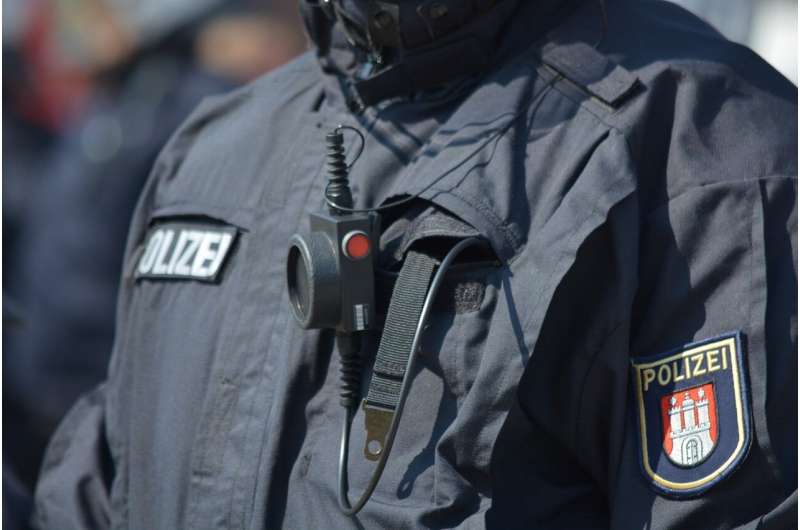This article has been reviewed according to Science X's editorial process and policies. Editors have highlighted the following attributes while ensuring the content's credibility:
fact-checked
trusted source
proofread
Bodycams in court get broad police approval, according to survey

In the courtroom, Quebec provincial police officers seem to be broadly in favor of having images captured by body-worn cameras used as evidence, but are also concerned about some of the potential consequences for the pursuit of justice.
They'd expect the footage to serve as visual evidence, to replace portions of written reports and to corroborate their testimony. However, they worry that it could also be used by defense lawyers to find discrepancies, which could bog down legal proceedings.
These are the findings of a recent study by Rémi Boivin, a professor at Université de Montréal's School of Criminology, based on interviews with nearly 80 Sûreté du Québec officers at four police stations who took part in a six-month bodycam pilot project in 2021.
The research is published in the Policing: A Journal of Policy and Practice.
"Overall, the officers were more likely to see the benefits of using bodycam footage in court than the limitations or potential risks," said Boivin.
Not currently used in Quebec
Body-worn cameras, which record interactions between law enforcement and the public, are not currently used in Quebec. However, some police departments in the province have conducted pilot projects to evaluate their deployment.
Criticisms of bodycams include their technical limitations (archiving images, battery life, etc.), their high cost and their intrusive nature, for both citizens and police officers.
And their purported benefits—deterrence of criminal behavior, transparency of policing, more accurate police reports and visual evidence that can be used in court—are not currently supported by scientific evidence, Boivin said.
"Studies that have looked at these issues have found relatively limited effects on the content of police reports, people's reluctance to engage in criminal activity, and the provision of additional evidence," he said. "As for police transparency, citizens rarely have a chance to view the footage."
Of the 200 tapes Boivin and his team viewed, only one helped clarify the facts about a police intervention, in a shooting.
Need comes from the U.S.
"Contrary to popular belief that bodycams are mainly used to hold police accountable, the tapes are used to prosecute citizens more often than police officers," said Boivin.
The perceived need to deploy these technologies often arises in the U.S. context, where the use of force and complaints against officers (particularly for racial profiling) seem to be more commonplace.
"In Quebec, the use of force is relatively low," Boivin commented.
"In the course of my career, I've never come across a case where the police officer said one thing and the footage showed something different. It happens in the U.S., but here we don't have so many examples that demonstrate that there is an urgent need for cameras."
More information: Brigitte Poirier et al, Body-worn cameras and court proceedings: A qualitative study of police officers' expectations, Policing: A Journal of Policy and Practice (2024). DOI: 10.1093/police/paae007
Provided by University of Montreal





















